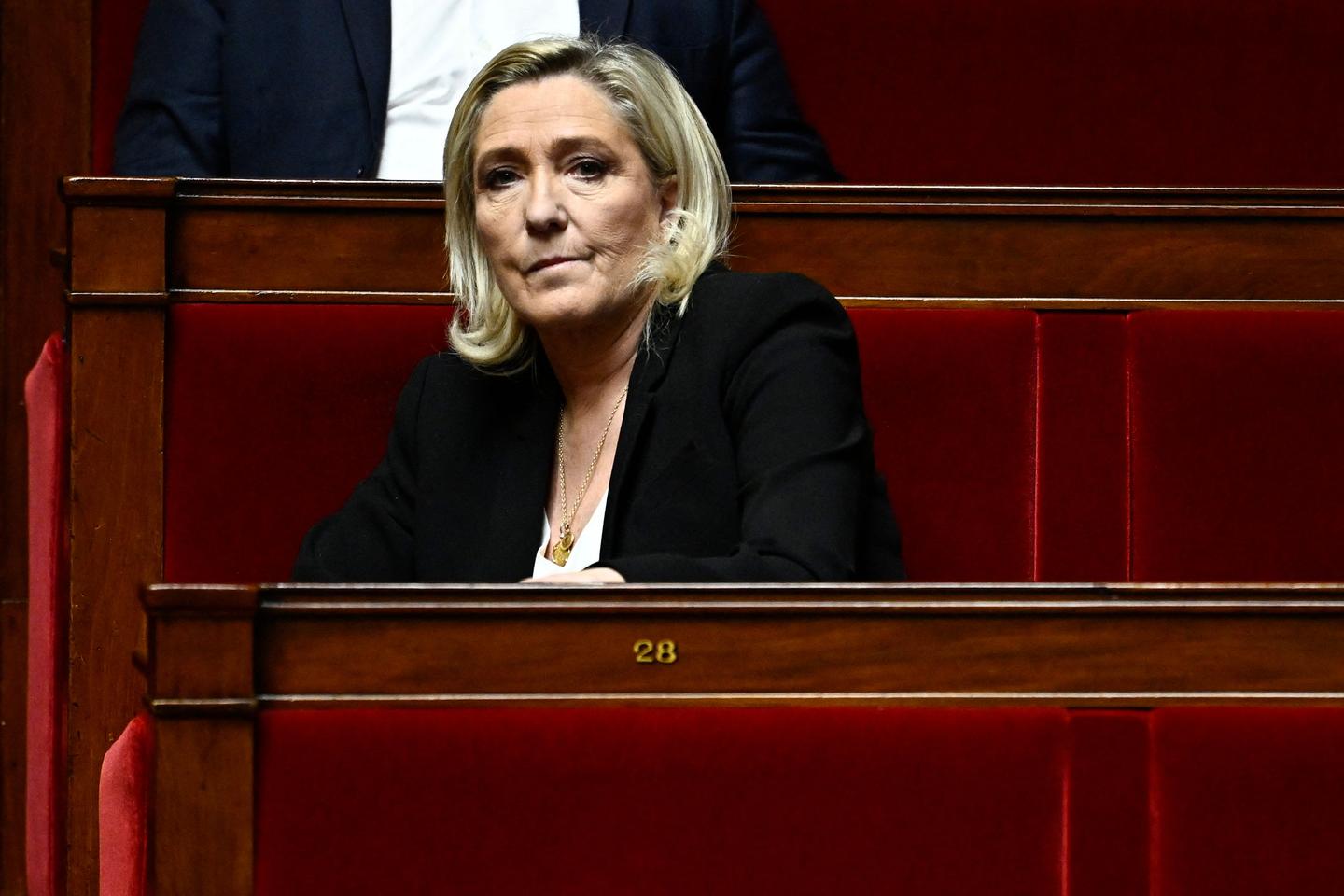


Since the end of November, Marine Le Pen has been able to measure the influence she has gained on the French political scene. The president of the far-right Rassemblement National (RN) parliamentary group first held the prime minister to ransom by raising the stakes on the amendments she was defending as part of the discussions on the budget and social security budget bills. In the space of a few days, she secured the cancellation of taxes on electricity, an overhaul of the State Medical Aid, a reform of the legislative voting system and the reversal of the delisting of certain pharmaceutical drugs.
Then, feeling that she had played the game enough, she decided to topple Prime Minister Michel Barnier and his government. On Monday, December 2, Le Pen said that the 124 MPs in her group would vote in favor of the two motions of no-confidence to be debated on Wednesday in the Assemblée Nationale: the one put forward by her party, but also the one tabled by the left (votes have to be combined for the motion to succeed). If they follow their leader's instruction, RN lawmakers will back a text that denounces "their most vile obsessions" with immigration, according to the text drafted by their opponents.
If all goes according to Le Pen's plan, by mid-week, there will no longer be a prime minister, a government or any financial texts to guide the action of the government and Social Security in 2025. A plunge into the unknown, with no Plan B and no alternative majority, as Barnier said on Tuesday, December 3, as he outlined the consequences. "The situation is already difficult. Everything will be more difficult and more serious," he summed up, listing political uncertainty, rising interest rates and the losses that those Le Pen claims to be protecting will mechanically suffer in the absence of legislation.
Tensed country
Therein lie the limits of Le Pen's move: no obvious gain and the risk of worrying the clientèle that the RN courts – pensioners in search of tranquillity and business leaders looking for stability and visibility. In just a few minutes, she shattered the normalization strategy she had been consistently pursuing.
The notion of a calm ascent to power has vanished along with the facade of respectability that she had tried to project onto her supporters. Under the guise of addressing the frustrations of her base, she has permitted her own anger to surface, a feeling that has lingered since the indictments in the trial for charges of embezzling EU Parliament funds in a fake jobs scheme. The verdict will be announced on March 31, and she faces the possibility of political ineligibility.
The far right is only strong when those who claim to fight it offer it a foothold. Everything separates radical-left leader Jean-Luc Mélenchon from Le Pen except a common goal: getting Emmanuel Macron to resign as quickly as possible. That's why Mélenchon's party, La France Insoumise, is in no way offended by the "coalition of opposites" that is now putting the country under strain.
The Socialists' consciences are less tranquil, but the prime minister has done nothing in the last three months to try and build solid bridges with the moderate left. The government and its only star, Interior Minister Bruno Retailleau, has been obsessed with winning back voters who had gone over to the RN, at the cost of outbidding them on immigration issues. With no majority, this was a particularly dangerous game to play. The trap closed.
